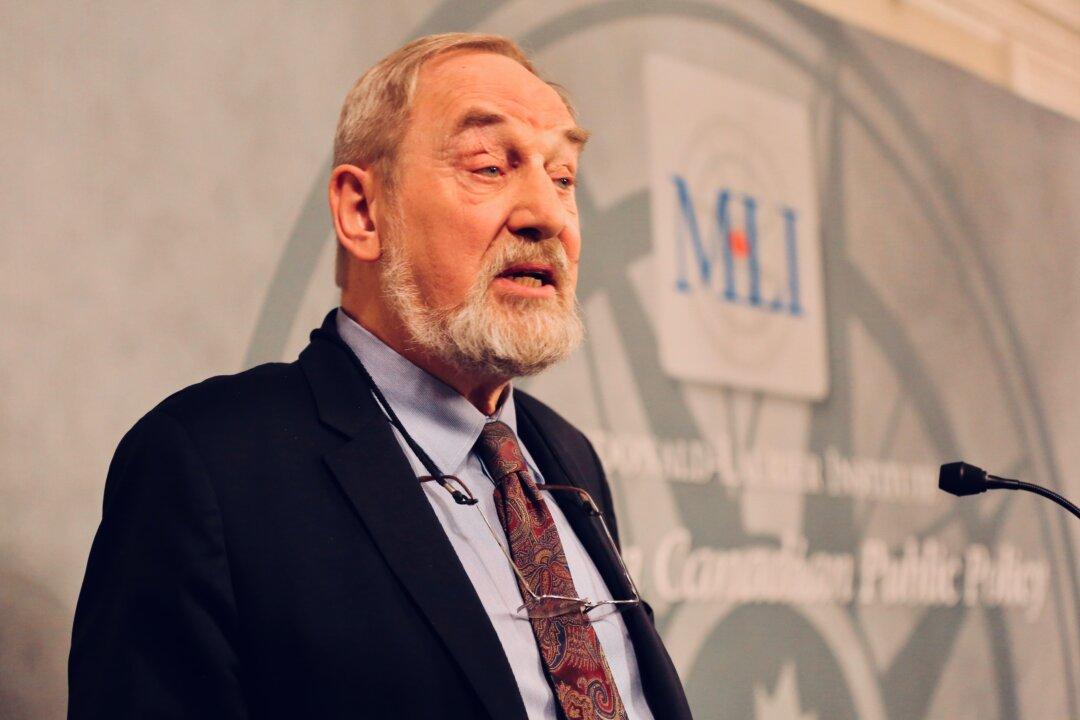OTTAWA—Canada’s highly romanticized belief that China’s ruling communist regime can be reformed has not served it well. That’s one of the many takeaways from Jonathan Manthorpe’s book “Claws of the Panda: Beijing’s Campaign of Influence and Intimidation in China.”
At its national book launch hosted by the Macdonald-Laurier Institute public policy think tank on Feb. 26, the journalist of 40 years explained that Canadians—politicians, business people, and ordinary citizens alike—need to understand that the rule of law does not apply in China; the rule of law is a threat to the one-party state.





